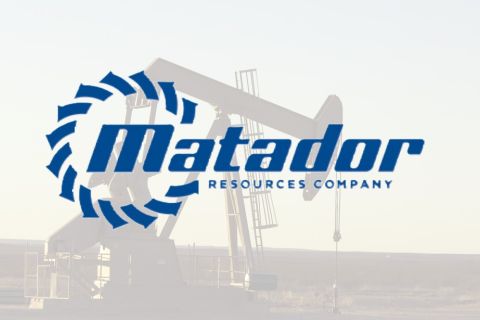
Miller Energy Resources Inc. said Aug. 20 it has reached an agreement in principle to resolve accusations that it overstated the value of oil and gas properties it acquired in Alaska in late 2009.
Miller and the Securities and Exchange Commission’s enforcement division staff has agreed to a proposed settlement worth $5 million over a three-year period.
The SEC’s case centers on the acquisition of oil and gas assets in Alaska that Miller bought for $2.25 million from Pacific Energy.
William P. Hicks, associate regional director of the SEC’s Atlanta office, has said Miller “grossly overstated the value of its Alaska assets.”
Miller “later reported them at a value of $480 million,” or about 210 times their purchase price, according to the SEC’s Division of Enforcement.
Miller would initially pay $125,000 in escrow, then $500,000 by Dec. 31. The remainder of the $5 million would be paid in three installments of about $1.46 million. Miller initially said that the accusations were unwarranted under the law and stem from a matter that is 5 years old.
The agreement still has to be approved by the securities commission.
Miller has been roiled the past several months by SEC accusations, lawsuits and aggressive creditors while seeking a loan to reduce the company’s debt. The company’s stock began the process of being delisted in July.
On Aug. 6, Miller said subsidiary Cook Inlet Energy LLC (CIE) was the subject of an involuntary bankruptcy petition filed in federal court. The petition was filed by Baker Hughes Oilfield Operations Inc., M-I LLC d/b/a MI-SWACO and Schlumberger Technology Corp., with total claims of $2.79 million. Miller said executives suspect the action was initiated by Baker Hughes in response to the SEC civil action against the company.
Each company said its claim is based on goods, materials and services they provided to Miller, according to federal court filings.
On Aug. 3, CIE also entered into a settlement agreement with AIX Energy LLC (AIX) that demanded CIE pay $1.2 million in damages under a gas sales agreement, plus interest, attorneys' fees and costs. CIE agreed to pay to AIX $875,000 to settle the matter.
In court documents AIX said that after Miller and AIX bid for assets of bankrupt E&P Buccaneer Resources LLC, which supplied gas to CIE.
AIX made a winning bid on Buccaneer’s assets and assumed the purchase and sale contract CIE had with Buccaneer for natural gas.
“Whether out of spite from losing the auction or simply an inability to pay its debts as they come due, CIE breached the contract by failing to timely pay,” AIX said in its suit.
In the SEC case Miller is accused of overstating its assets, which boosted the company’s net income and total assets. The SEC said the asset value had significant impact to the company, turning the penny-stock company into one that eventually listed on the New York Stock Exchange, where its stock reached a 2013 high of nearly $9 per share.
David M. Hall, the company’s former COO, resigned after accusations surfaced that the company fraudulently overstated the value of the Alaska acquisition, according to the Securities and Exchange Commission (SEC).
The SEC accused Hall with understating expenses and double counting $110 million worth of fixed assets included in a reserve report. Miller said Hall resigned Aug. 5 due to the interference the SEC’s allegations would cause him in performing his duties.
The agency also said former CFO Paul W. Boyd “relied on a reserve report that did not reflect fair value for the assets,” the agency said in an Aug. 6 news release.
If the proposal is approved by the SEC, Miller will review and, where appropriate, restate its financial statements related to the valuation of the 2009 acquisition. The company’s review will begin by correcting filings the SEC identified as incorrect and misleading.
As part of a wider review, Miller will examine financial information that might have been skewed by the overvalued properties in the past three fiscal years. For any financial disclosures that were materially impacted, “we will promptly issue a notice to investors instructing them that such affected financial disclosures should no longer be relied upon,” Miller said in an SEC filing.
Miller has swiftly resolved several high-profile debts and legal problems as it tries to obtain $165 million in private financing. The loan is under review for due diligence and legal requirements. The company is also considering the sale of assets.
Recommended Reading
Matador Bolts On Additional Interest from Advance Energy Partners
2024-02-27 - Matador Resources carved out additional mineral and royalty interests on the acreage it acquired from Advance Energy Partners for $1.6 billion last year.
APA Closes $4.5B Callon Deal, Deepening Permian Roots
2024-04-01 - About two-thirds of Apache’s daily production will come from the Permian Basin after APA Corp. completed its $4.5 billion takeout of Callon Petroleum.
Analysts: Diamondback-Endeavor Deal Creates New Permian Super Independent
2024-02-12 - The tie-up between Diamondback Energy and Endeavor Energy—two of the Permian’s top oil producers—is expected to create a new “super-independent” E&P with a market value north of $50 billion.
EIA: E&P Dealmaking Activity Soars to $234 Billion in ‘23
2024-03-19 - Oil and gas E&Ps spent a collective $234 billion on corporate M&A and asset acquisitions in 2023, the most in more than a decade, the U.S. Energy Information Administration reported.
Marketed: EnCore Permian Holdings 17 Asset Packages
2024-03-05 - EnCore Permian Holdings LP has retained EnergyNet for the sale of 17 asset packages available on EnergyNet's platform.





